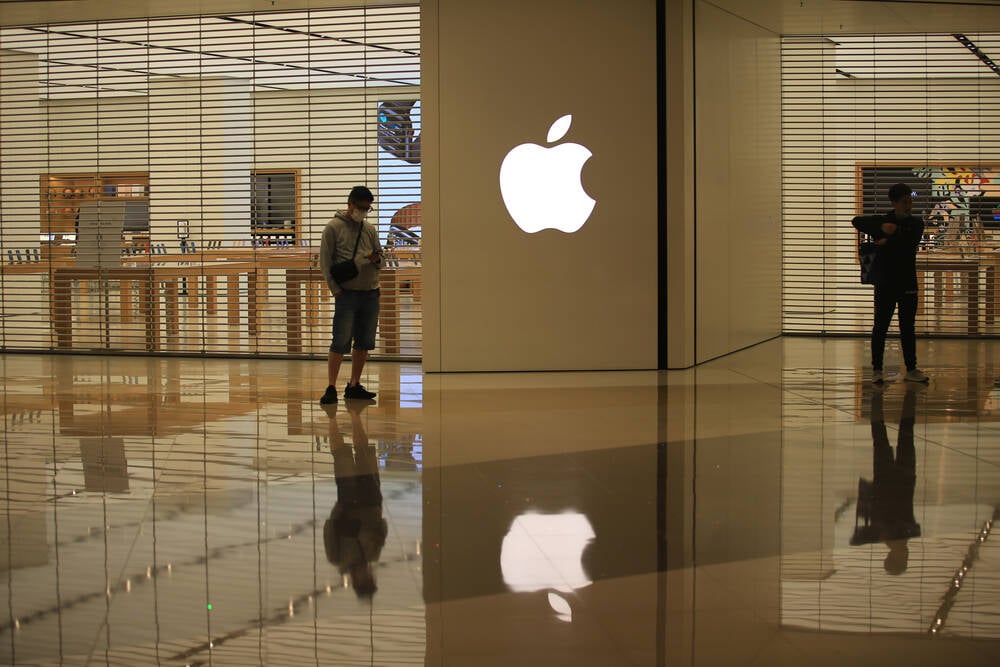Chip Firm Accused Of IP Theft Bites Back, Claims Apple's Contracts Are Rotten

A chip startup and several of its employees are being sued by Apple for theft of trade secrets and breach of contract and filed a countersuit.
Rivos was sued [PDF] by Apple early last year over claims it lured away a gaggle of Apple employees working on the system-on-chip (SoC) designs like those in its Mac and iPhone devices. Rivos and several of its employees who previously worked at Apple were named in the suit, and six of them participated with Rivos in the countersuit [PDF] filed in the District Court for the Northern District of California on Friday.
In the original lawsuit, Apple accused Rivos, which was founded in 2021 to develop RISC-V SoCs for servers, of a "coordinated campaign to target Apple employees with access to Apple proprietary and trade secret information about Apple's SoC designs." When informed of confidentiality and intellectual property agreements (IPAs), Apple claimed Rivos never responded.
Instead, "after accepting their offers from Rivos, some of these employees took gigabytes of sensitive SoC specifications and design files during their last days of employment with Apple," lawyers for Cupertino alleged.
A judge in the lawsuit dismissed [PDF] claims of trade secret theft against Rivos and two of its employees in August with leave to amend, but let other Defend Trade Secrets Act claims against individual employees, as well as the breach of contract claims, stand.
Apple has tried this before and failed, reasons Rivos
In its countersuit, Rivos and six of its employees argue that, rather than competing, "Apple has resorted to trying to thwart emerging startups through anticompetitive measures, including illegally restricting employee mobility."
Methods Apple has used to stymie employee mobility include the aforementioned IPAs, which Rivos lawyers argue violate California's Business and Professions Code rules voiding contracts that restrict an individual's ability to engage in a lawful business, profession or trade.
- Rocky Linux backer CIQ rejects lawsuit's claims it was founded on stolen IP
- Sure looks like Beijing stole blueprints from chip fab world's ASML
- Ex-Broadcom engineer asks for house arrest over IP theft
- Google sues Sonos yet again, claiming it stole IP and infringed patents
Under California law, Rivos lawyers claim, such a violation means Apple is engaging in unfair and unlawful business practices that have caused injury to Rivos through the need to fight such a lengthy and, if the contracts are unenforceable, unnecessary court battle.
"Apple's actions not only violate the laws and public policy of the State of California, but also undermine the free and open competition that has made the state the birthplace of countless innovative businesses," Rivos's lawyers argue in the lawsuit.
Rivos also claims that Apple's method of applying its IPA is piecemeal and often abused to allow Apple future legal opportunities.
"Even when Apple knows its employees are leaving to work somewhere that Apple (rightly or wrongly) perceives as a competitive threat, it does not consistently conduct exit interviews or give employees any meaningful instruction about what they should do with supposedly 'confidential' Apple material upon leaving," the countersuit claims.
"Apple lets these employees walk out the door with material they may have inadvertently 'retained' simply by using the Apple systems (such as iCloud or iMessage) that Apple effectively mandates they use as part of their work."
Rivos argues in its filing that Apple tried this exact same scheme before and it failed then too.
That incident involved Arm-compatible chipmaker Nuvia, which was founded by former Apple chip chief Gerard Williams in 2019. Apple sued Williams that same year over claims he violated his contract with Apple and tried to poach employees for his startup.
Williams unsurprisingly made the same claims as Rivos – that the Apple contracts were unenforceable under California law – and after a couple years of stalling, Apple finally abandoned its suit against Williams with little justification.
The iGiant didn't respond to our questions about the countersuit. ®
From Chip War To Cloud War: The Next Frontier In Global Tech Competition
The global chip war, characterized by intense competition among nations and corporations for supremacy in semiconductor ... Read more
The High Stakes Of Tech Regulation: Security Risks And Market Dynamics
The influence of tech giants in the global economy continues to grow, raising crucial questions about how to balance sec... Read more
The Tyranny Of Instagram Interiors: Why It's Time To Break Free From Algorithm-Driven Aesthetics
Instagram has become a dominant force in shaping interior design trends, offering a seemingly endless stream of inspirat... Read more
The Data Crunch In AI: Strategies For Sustainability
Exploring solutions to the imminent exhaustion of internet data for AI training.As the artificial intelligence (AI) indu... Read more
Google Abandons Four-Year Effort To Remove Cookies From Chrome Browser
After four years of dedicated effort, Google has decided to abandon its plan to remove third-party cookies from its Chro... Read more
LinkedIn Embraces AI And Gamification To Drive User Engagement And Revenue
In an effort to tackle slowing revenue growth and enhance user engagement, LinkedIn is turning to artificial intelligenc... Read more

